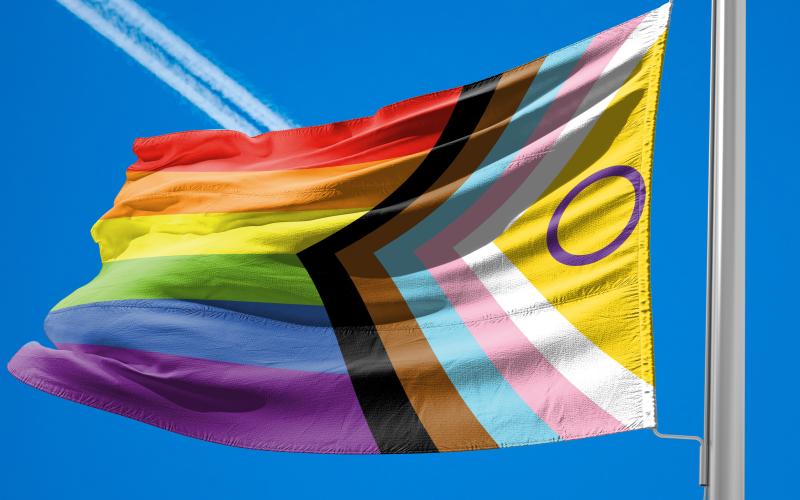
With Pride Month in full swing, employers across the UK are marking June with a host of messages, events, fundraisers and other initiatives. Although Pride is an important opportunity for employers to demonstrate their commitment to inclusive values, consistent and visible action is needed throughout the year to create a truly inclusive workplace.
In this article we reflect on ways to embed LGBT+ inclusion into employment policies and practices throughout the year.
Why inclusion still matters
Although the treatment of and attitudes towards the LGBT+ community have evolved rapidly over recent decades, barriers to inclusion persist.
In its 2023 LGBT+ Inclusion at Work report, Deloitte found that - of the over 5000 LGBT+ people surveyed across 13 countries - only 43% of respondents were ‘out’ to everyone at work about their sexuality. Only 47% of respondents were out about their gender identity. This was despite a significant majority feeling that being out at work was important. The most common reason cited for this discomfort was a fear of being treated differently as a reason, a worrying indication of how far we still have to go. Strikingly, one third of respondents said that they were actively looking to move to a more LGBT+ inclusive employer.
The most effective practices for your organisation will depend on its size, the make-up of the workforce, culture and many other factors. Below, we highlight some of the key considerations for any organisation.
1. The importance of leaders
Senior leadership plays an important role in establishing the culture of any organisation. This is true of LGBT+ inclusion as much as any other area. Vocal support from senior leaders can help establish an environment in which employees feel comfortable, safe and able to be themselves. Senior leaders should be actively involved in and informed about inclusion initiatives and make it clear to all employees that inclusion matters to the organisation.
Similarly, employees who take on a leadership role to promote and improve inclusion – such as through contributing to LGBT+ networks – should be recognised and rewarded, for example through recognition during performance reviews.
2. Language matters
Using non-inclusive language in policies and communications risks creating a sense of invisibility for LGBT+ colleagues. Family leave policies are a key area where language should be carefully considered. The statutory language is in some ways unhelpful in this area. For example, ‘paternity’ leave is also available to women in same-sex relationships who are not giving birth to a child. The language of a policy should therefore make it clear who can claim various types of leave. This demonstrates an important message that family leave is not only available to, but also equally important and relevant for, people in non-heterosexual relationships.
3. Do the little things right
Implementing truly inclusive practices needs to be more than just a gesture, but little things can make a big difference. Visibly inclusive practices, such as displaying Pride symbols throughout the year (rather than just in connection with Pride month), or encouraging colleagues to wear allyship badges, can be an important signal to employees and potential employees about an organisation’s culture and priorities.
4. Address difficulties head on
In the report referenced above, Deloitte found that 43% of LGBT+ employees who experienced ‘non-inclusive behaviours’ in the workplace chose not to report these to their employer. Key reasons for this included a lack of confidence that the complaint would be taken seriously, that reporting would make the situation worse or that no action would be taken. Just under a third of respondents feared adverse career impacts.
Employers therefore need to back up messaging and initiatives with a robust approach when things go wrong. It is important that employees have a clear route to reporting and that complaints are taken seriously. Senior leadership has an important part to play in preventing incidents by vocally supporting greater inclusion and emphasising that non-inclusive behaviour is unacceptable. Employers should reflect on potential barriers to reporting, and aim to put in place reporting mechanisms which are confidential and, ideally, allow employees to discuss issues with colleagues they are confident will understand their experiences – such as members of an LGBT+ employee network.
5. Reflect on the evidence
In March 2024 the Inclusion at Work Panel, commissioned by the UK Government, published its recommendations for improving diversity and inclusion practices in the workplace. One of the Panel’s key findings was a lack of understanding, knowledge and reflection on the evidence before and after introducing inclusion initiatives. The Panel referenced a finding by CIPD in 2022 that only 25% of respondent employers said that they consulted data before planning new inclusion and diversity activity, and the same number reviewed their equality opportunities data on a regular basis.
Of course, many employers will not have the resource to conduct detailed data gathering exercises and in-depth reviews of inclusion practices. Steps which smaller as well as larger organisations can take include considering available data and information on the effectiveness of proposed practices, gathering anonymised data during recruitment stages and reviewing this regularly, and including questions about LGBT+ inclusion practices in existing feedback mechanisms, such as staff surveys.
Taking the time to implement effective inclusion practices is, first and foremost, the right thing to do. Employees should feel able to be themselves at work and should not feel that they have to hide parts of their lives for fear of being treated differently. More than that, though, creating an inclusive environment can promote productivity, improve recruitment and retention and, importantly, reduce the risk of harassment and discrimination in the workplace. To achieve these goals, employers must consider actions they can take after the buzz of the annual Pride celebrations wears off.
Thorntons’ specialist employment team are expert in advising employers on all aspects of equality law at work. For more information contact a member of the employment team on 03330 430350.

